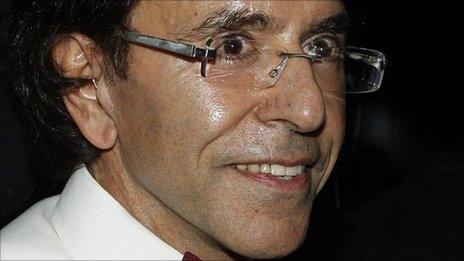Philippe becomes new Belgian king as Albert II abdicates
- Published
Highlights from the abdication of Albert II and coronation of King Philippe
Crown Prince Philippe has been sworn in as the new Belgian king after the emotional abdication of his father Albert II.
The Oxford- and Stanford-educated, trained air force pilot took the oath as the country's seventh king in a ceremony in parliament.
To warm applause, King Philippe, 53, promised to uphold the constitution.
Belgium has a constitutional monarchy in which the king plays a largely ceremonial role.
One of the duties the monarch does have is trying to resolve constitutional crises.
In his final address before signing a legislative act to step down, 79-year-old King Albert said his country must remain a "source of inspiration" to Europe.
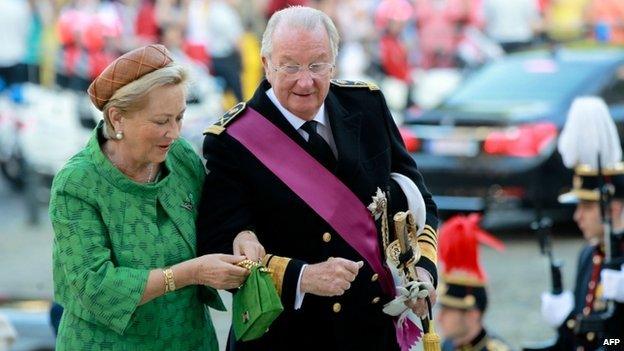
Albert II's final day as king began with a thanksgiving Mass at the St Michael and St Gudula Cathedral
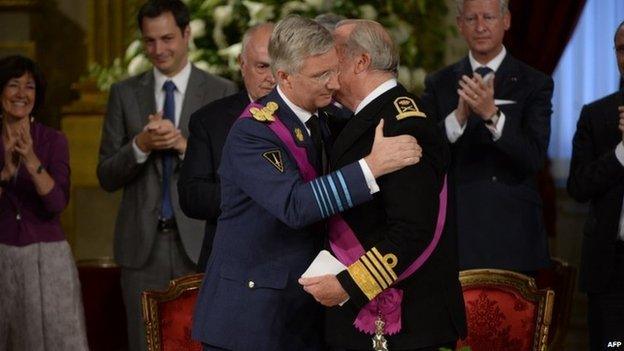
He hugged his son before signing the abdication treaty at the palace in Brussels
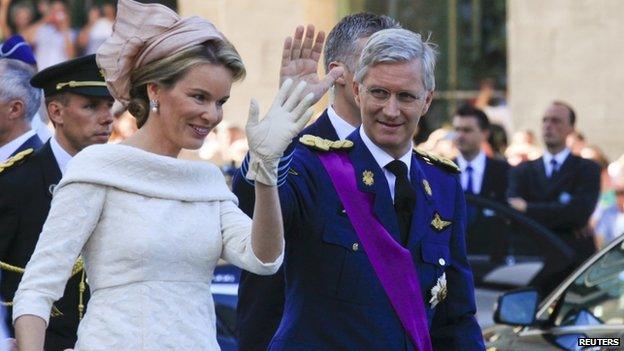
After a service celebrating Albert's 20 years on the throne, Philippe and his wife Mathilde waved to the crowd
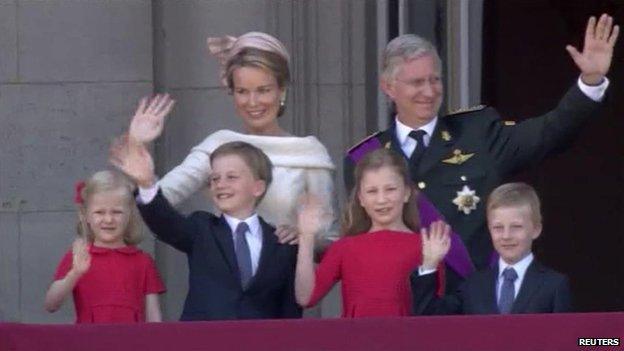
They were joined by their children to wave to supporters from the royal palace balcony
His resignation on the grounds of ill-health came after nearly 20 years on the throne and was timed to coincide with Belgium's national day.
He stressed his wish that Belgium - split between the Dutch-speaking north and the French south - remained united.
Balcony appearance
In a colourful ceremony topped off by trumpet fanfare and cannon-fire, Philippe took his oath in the country's three official languages - Dutch, French and German.
This was a reminder of the delicate political task that awaits him - trying to mediate across the divide between French-speaking Wallonia and Dutch-speaking Flanders, where support for independence has been rising fast, says BBC Europe correspondent Chris Morris.
Flag-waving supporters gathered in the midday sun waiting for their new king and his wife, Mathilde, to greet them from the balcony of the nearby royal palace.
"The new king is a bit of history," said Xavier De Graef, draped in the red, yellow and black of the Belgian tricolour.
"That doesn't happen very often so we wanted to be here," Mr De Graef, from French-speaking Liege, told Reuters news agency.
But not everyone was celebrating.
The far-right separatist Vlaams Belang party boycotted the swearing-in ceremony.
Meanwhile, Jan Jambon, parliamentary head of the N-VA party that wants Dutch-speaking Flanders to break away from Belgium and favours a republic, said the occasion "leaves me cold".
Constitutional crises
In the abdication ceremony at the royal palace in Brussels, the former monarch told his son: "You have all the emotional and intellectual qualities to serve our country well."
He thanked an audience of some 250 dignitaries and political leaders "for all that you have achieved during my reign".
Ex-king Albert also thanked his wife, Paola, for the support she had given him during his reign, and was in turn thanked by Prime Minister Elio Di Rupo for his service to his country.
Mr Di Rupo holds the political power in the 183-year-old parliamentary democracy.
Albert II then embraced his son and signed the official abdication papers, ending his reign.
King Albert exercised his authority in mediating between political leaders on the formation of a government during the 2010-2011 parliamentary stalemate, when Belgium was left without a government for 541 days after elections failed to find a clear winner.
Tensions between the Dutch-speaking and French communities sometimes run high, and the issue has brought down several governments, creating frequent political instability.
Respect for the royal family, though, is one of the few factors that crosses the communal divide.
King Albert's abdication comes only three months after Queen Beatrix of the neighbouring Netherlands vacated the Dutch throne in favour of her son Willem-Alexander.
- Published21 July 2013
- Published3 July 2013
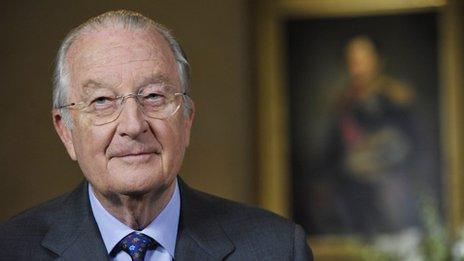
- Published29 February 2016
- Published27 December 2012
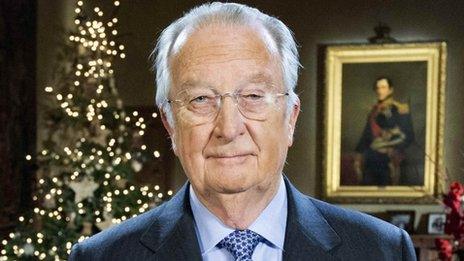
- Published15 September 2011
